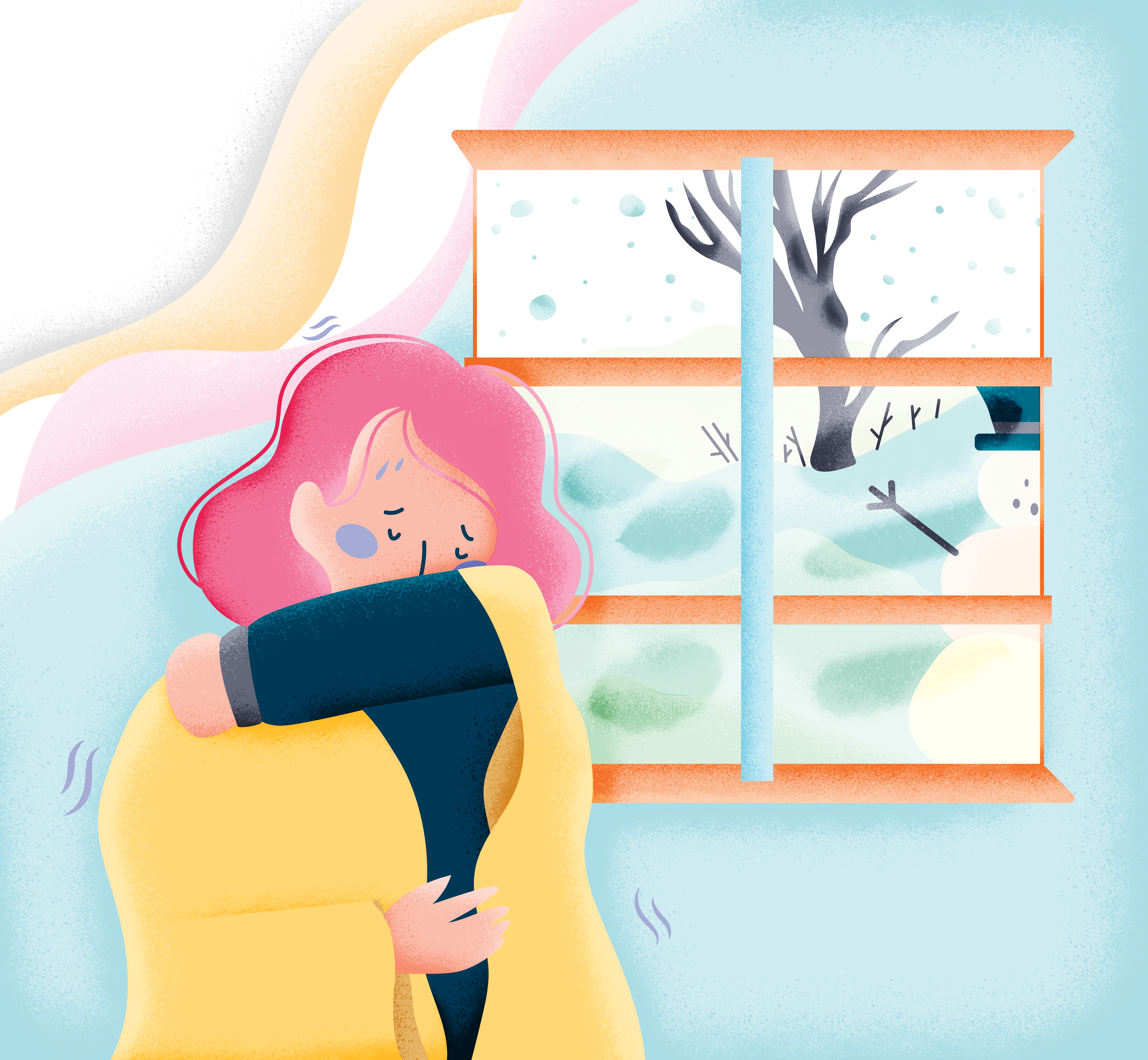The official winter season is almost here, and many homeowners are concerned about wintertime indoor air quality. The cold weather can cause a number of comfort and health issues, putting a damper on holiday fun. Let’s take a closer look at dry air, one of the biggest annoyances and potential health threats during the winter season.
What is Considered Dry Air?
There are two definitions of dry air. The first is simply air with no water vapor. (However, except for experiential laboratories with extreme setting controls, this is next to impossible.) The second is air with low relative humidity or an underwhelming amount of water vapor. For the purpose of this article, we will use the latter definition. Dry air is simply air that is significantly lacking moisture.
Equally important, air with low relative humidity is generally under 40%. That means dry air falls below the ideal 40% to 60% indoor humidity range. Generally speaking, when humidity levels are below this range, the air is noticeably dry.
What Causes Dry Indoor Air?
Dry indoor air can be a direct result of cold weather. Cold air does not (as in, cannot) hold the same amount of moisture as warm air. At the same time, our bodies do not hold onto moisture as well in cooler temperatures. As a result, we turn on the heater in our homes causing the indoor air to become even drier.
Is Dry Air Bad for You?
Medical experts confirm that prolonged exposure to dry air can lead to:
- Increased susceptibility to respiratory infections
- Worsened asthma symptoms
- Dehydrated mucous membranes
- Poor quality sleep
- Skin conditions
- Eye irritation
Can Dry Air In House Make You Sick?
Can dry indoor air make you sick or affect breathing? Yes! Dry indoor air wreaks havoc on the human body, leading to a range of mild to severe symptoms. Symptoms as a result of exposure to dry air include:
- Ear, nose, throat and eye irritation
- Stress
- Nosebleeds
- Dry skin
- Dermatitis
- Dehydration
- Bronchitis
- Asthma
- Sinusitis
- Illnesses like colds and the flu
Let’s take a look at the science behind these symptoms. Dry air depletes our mucous membranes of the moisture necessary to prevent irritation and illness.
This explains the increase in cold, flu and pneumonia cases during the wintertime. This also accounts for worsening nosebleeds, asthma, bronchitis and sinusitis. These are all irritations and illnesses that are usually prevented by mucus which traps harmful particles.

Furthermore, our skin, the human body’s largest organ, contains 64% water. This helps explain the propensity for dermatitis and dehydration when surrounded by dry indoor air. Finally, dry air increases stress levels. When we are stressed, our immune system is weakened, our sleep is disrupted and we are generally a bit more miserable. Which is also a recipe for illness.
Symptoms of Sleeping in a Dry Room
Living with dry air can affect your health and comfort. Common symptoms include:
- Dry, scratchy throat upon waking
- Irritated nasal passages
- Cracked lips and dry skin
- Static electricity
- Frequent sinus headaches
- Difficulty breathing
- Worsened allergy symptoms
How To Fix Dry Indoor Air in Your Home
The single most important solution to dry indoor air is humidification. When searching for a humidifier, don’t bother with portable humidifiers as they can only humidify one area at a time. Instead, we suggest investing in a whole-home humidifier. It will address the entirety of the issue leaving your family feeling warm, hydrated and comfortable.
The best part? A whole-home humidifier solution is directly installed into your home’s HVAC system. It will automatically detect when indoor humidity levels are unsatisfactory and adjust accordingly.
There are two types of humidification technologies, steam and evaporative. Both technologies are effective, they simply differ in their moisture-producing methods.
Immediate Solutions
- Use a high-quality humidifier
- Place water bowls around heating sources
- Add indoor plants
- Leave bathroom door open after showers
- Use a clothes drying rack indoors
Long-term Fixes
- Install a whole-house humidification system
- Seal air leaks around windows and doors
- Maintain optimal temperature (68-72°F)
- Regular HVAC maintenance
- Use moisture-promoting air filters
 More: Looking to invest in whole-home humidification? Take a look at the difference between steam and evaporative humidifiers to find the best technology for your home! Learn more →
More: Looking to invest in whole-home humidification? Take a look at the difference between steam and evaporative humidifiers to find the best technology for your home! Learn more →Best Humidity Level for Sleeping When Sick
When dealing with illness, maintain humidity between 40-50% to:
- Ease congestion
- Reduce virus transmission
- Promote faster recovery
- Improve sleep quality
My House is Dry: Quick Assessment Guide
Check these indicators:
- Static electricity frequency
- Wood furniture condition
- Plant health
- Skin and throat dryness
- Use a hygrometer for accurate readings
Dry Air FAQ
Dry air occurs when indoor humidity levels fall below 40%. While ideal home humidity should range between 40-60%, many houses experience uncomfortably dry conditions, especially during winter months or in arid climates.
Portable humidifiers can improve air quality within 2-3 hours, while whole-house solutions may take 24-48 hours to reach optimal levels.
Ultrasonic humidifiers offer efficient moisture distribution and quiet operation, ideal for bedrooms and living spaces. Remember to maintain humidity monitors and clean humidification devices regularly for optimal performance and health benefits.



